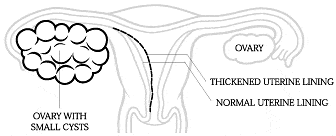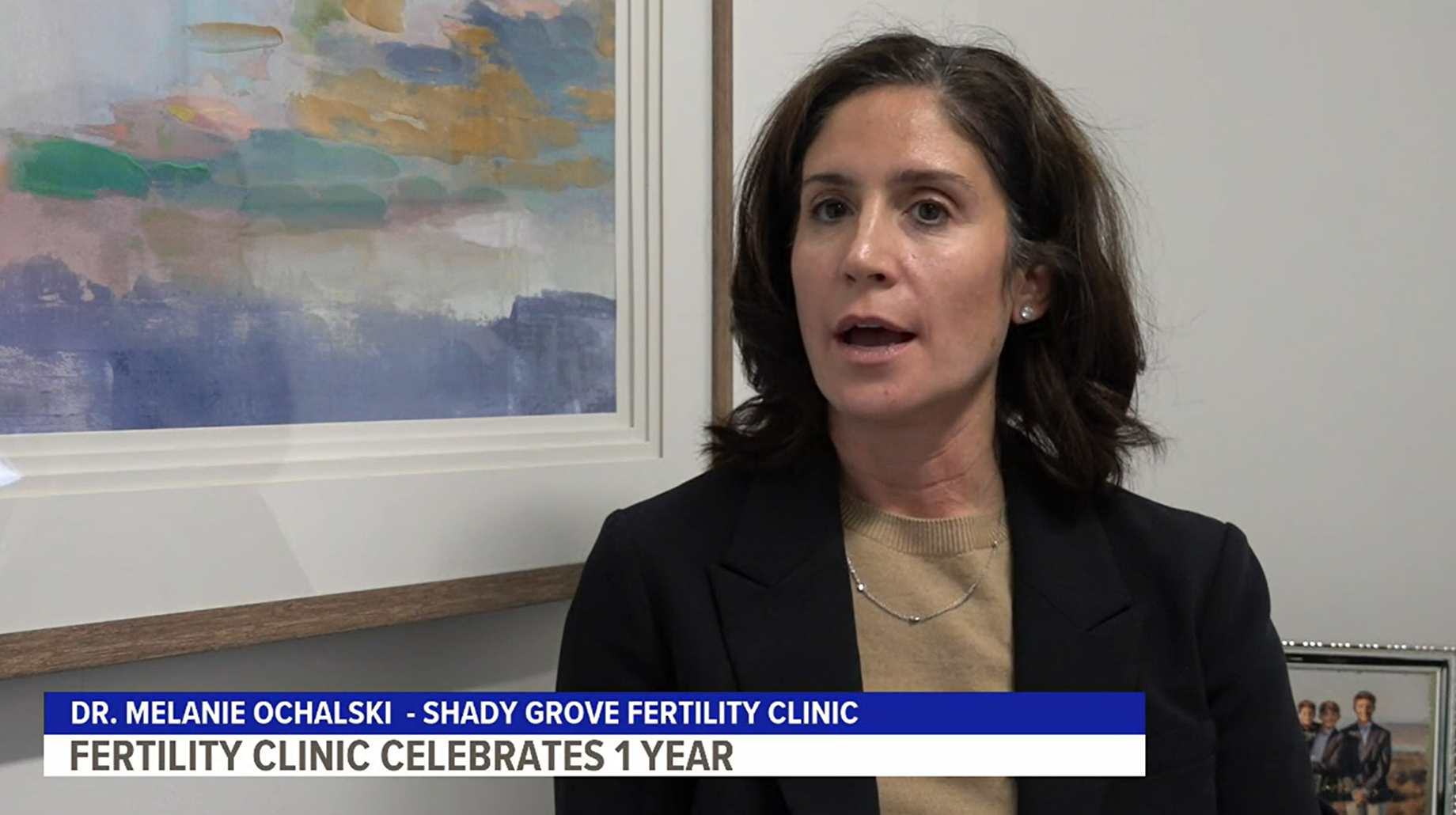
Written by Eric D. Levens, M.D., of Shady Grove Fertility’s Annandale, VA, office
While there are many causes of female infertility, polycystic ovary syndrome, or PCOS, is very common. In fact, PCOS affects nearly 5 to 10 percent of reproductive age women and is the most common ovulatory disorder. Luckily, PCOS is also one of the more readily treated infertility conditions.
PCOS is caused by hormonal imbalances that curtail or prevent ovulation—the body’s process of producing and releasing eggs from the ovary. Essentially, women with PCOS have an inappropriate production of follicle-stimulating hormone (FSH) and luteinizing hormone (LH) that results in limited egg development and an increase in testosterone and other typically male hormones. These imbalances can cause the following signs and symptoms:
- Irregular menstrual cycles—those that are 3 to 5 days shorter or longer than one’s typical cycle (a normal cycle ranges between 24 and 35 days)
- Heavy or absent periods
- Acne
- Excess facial and body hair

Having these symptoms can indicate PCOS. For most women who are not trying to conceive, the diagnosis of PCOS occurs while under the care of a gynecologist. Treatment may consist of oral contraceptive pills for menstrual cycle control and improvement in acne and potential hair growth if pregnancy is not desired. However, because PCOS affects a woman’s ability to ovulate, fertility problems are commonly associated with this condition. Disorders of ovulation are some of the most common conditions treated at Shady Grove Fertility—and many of these women have PCOS.
Understanding What Causes PCOS
The etiology, or cause, of PCOS is not completely understood. It is clear that there is a genetic basis to the condition, as a woman is more likely to develop the condition if her mother or sister has it. It is also known that disrupted signaling from the brain to the ovary affects ovarian hormone production, which further exacerbates, or worsens, the condition.
PCOS Can Affect Your Overall Health
Although being able to become pregnant is a common concern for women with PCOS, there are related health issues that also make diagnosing the condition important. For example, women with PCOS frequently demonstrate insulin resistance, which may lead to diabetes in the future. Insulin resistance often exacerbates the ovulation dysfunction. High blood pressure and high cholesterol, which can cause heart problems, are also related to PCOS. Moreover, women not having menstrual cycles for extended periods of time may also develop an overgrowth of the uterine lining, resulting in a greater risk of uterine cancers.
While PCOS is not preventable, women can work to manage related factors like obesity, which can compound the problem. If you have PCOS and are overweight, exercise and a healthy diet can improve ovulation, your response to fertility medications, and your chances of becoming pregnant. Studies have shown that losing just 5 percent of your body weight can help women restore their menstrual cycle and ovulate on their own. Losing weight also can reduce other symptoms of PCOS, such as hair growth and acne.
Finding Effective Treatment

If you’re having trouble getting pregnant and you have some or all of the symptoms common to PCOS, see your doctor. While there is no single diagnostic test available, he or she can confirm whether you have the condition—through tests that may include bloodwork to check your hormone levels or an ultrasound to detect cysts in the ovaries—and suggest treatment options.
Common fertility treatments include oral medications to help with ovulation such as Clomiphene citrate (Clomid) and letrozole (Femara). Your doctor may prescribe a second oral medicine, such as metformin, a diabetes drug, along with it that can help make the body more sensitive to insulin and lead to more regular ovulation.
Historically Clomid has been the first line of treatment for PCOS; however, letrozole use has been increasing due to a possible increase in pregnancy rates. However, it is important to note, if you have not conceived after three to four cycles of Clomid, you should consider a different course of treatment, such as intrauterine insemination (IUI) or in vitro fertilization (IVF).
While your gynecologist may provide initial fertility treatment, seeking the care of a fertility specialist sooner, rather than later, is a good idea. Fertility specialists have completed extensive subspecialty reproductive medicine and infertility training to properly and actively monitor all of your treatments to ensure the best outcome. With lifestyle changes and appropriate medical treatment, you can manage PCOS and have a very good prognosis for conception.
If you would like to learn more or to schedule an appointment, please speak with one of our New Patient Liaisons at 877-971-7755.





